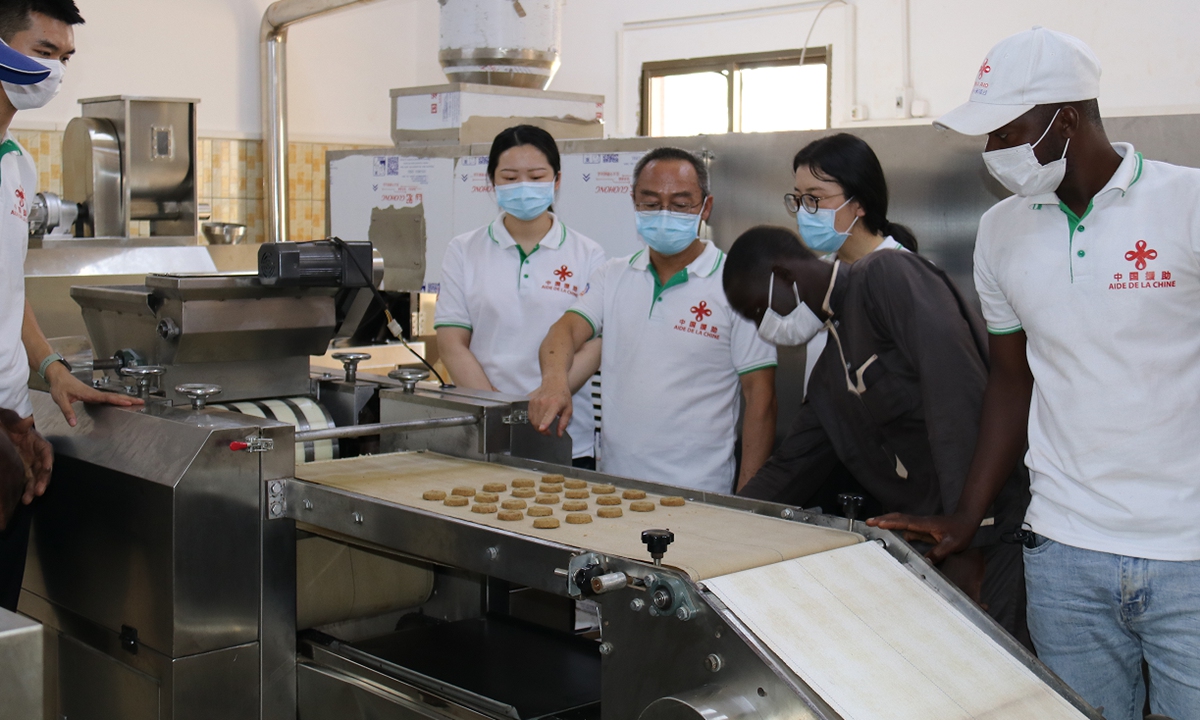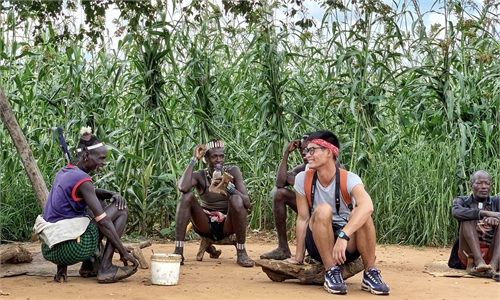China actively helps Africa build systematic, industrialized supply chains to boost agriculture

A millet processing factory built by Zhongdi Overseas Agricultural Development Co in Burkina Faso's capital, Ouagadougou Courtesy: Zhongdi Overseas Agricultural Development Co
China and Africa have achieved fruitful results in the agricultural sector in the past 10 years, representatives from embassies in China, Chinese experts and enterprises said on Friday at an event focusing on China-Africa agricultural cooperation. They also pointed out that Africa needs to build systematic, industrialized supply chains to boost agriculture, a field in which Chinese departments and enterprises can exchange experiences and offer help.
Since the establishment of the Forum on China-Africa Cooperation, especially in the past decade, China-Africa agricultural cooperation has yielded fruitful results and delivered tangible benefits to the African people, Liu Yuxi, Special Representative of the Chinese Government on African Affairs, said on Friday when addressing the China-Africa Harvest Night.
The event was part of a series of activities titled "China-Africa agricultural cooperation in the New Era," and was held together with a salon titled Food Security in Africa and China-Africa Agricultural Cooperation also on Friday.
Diplomats from more than 30 African countries in China and representatives from international organizations also attended the event.
"China has always been a defender of world food security and a contributor to global poverty reduction. China will make greater 'Chinese contributions' to help more African countries realize the UN 2030 Agenda for Sustainable Development and the African Union's Agenda 2063 at an early date," said Liu.
The event was held when Tanzanian President Samia Suluhu Hassan paid a state visit to China. She was the first African head of state China received after the 20th National Congress of the Communist Party of China. When meeting Hassan, Chinese President said that with a particular focus on infrastructure, "we will continue to nurture new drivers for China-Africa cooperation through trade, investment and financing."
Fruitful results have been achieved in Africa through collaboration with Chinese institutions and enterprises.
For instance, the millet processing factory built by Zhongdi Overseas Agricultural Development Co in Burkina Faso's capital, Ouagadougou, has helped increase market demand for millet, thus motivating farmers to grow more plants, Zhao Hanqing, deputy general manager of the enterprise, told the Global Times on Friday at the sideline of the harvest night event.
"The locals have only one way to eat millet, which is to crush it and boil it into a paste. We built a factory to process millet into cookies, doughnuts, and other food. With the processing plant, we can collect millet from local farmers, which in turn can promote upstream cultivation," said Zhao.
According to Zhao, after operating for about three years, the millet yield in Burkina Faso increased from 0.65 tons to 0.82 tons per hectare, which means the output of millet has increased by 200,000 tons in total. "So that's how an enterprise can help," he explained.
Another example is the "Small Technology, Big Harvest" project, an agricultural project overseen by the China Agricultural University in collaboration with Tanzania's Sokoine University of Agriculture in the Morogoro region of Tanzania, which has helped Tanzanian farmers triple their maize production by providing planting techniques.
According to statistics from Sokoine University of Agriculture, as of mid-November in 2021, the project had covered more than 1,000 local farmers and more than 10,000 mu (666.7 hectares) of land, and a large number of unregistered farmers were also using the new technology.
In the past, Tanzanian farmers could only grow 1,000 to 2,000 maize plants per mu, said Li Xiaoyun, chair professor of China Agricultural University and honorary Dean of College of International Development and Global Agriculture, who is in charge of the project.
The Chinese research team arrived in Tanzania in 2011 and worked with local technicians and farmers to come up with a maize intensive planting technique based on China's experience, which eventually increased maize yields by more than three times.
The project has been selected as the outstanding case of Good Practices in South-South and Triangular Cooperation for Sustainable Development on many occasions.
An underdeveloped agricultural sector and barriers to market access are common challenges to food security in Africa, Winfred Ni Okai Hammond, Ambassador of Ghana to China, said on Friday at the salon.
"Africa's underdeveloped agriculture is characterized by over-reliance on primary or subsistence agriculture, low fertility soils, significant food crop loss both pre- and post-harvest, minimal value addition and product differentiation, and inadequate food storage and preservation, which results in significant commodity price fluctuation," said Hammond.
"The problem for Africa's agriculture is not how to feed itself. Links between production and markets are often insufficient in Africa. Therefore, African farmers lack motivation to increase their output," Tang Lixia, professor and deputy Dean of College of International Development and Global Agriculture at China Agricultural University, told the Global Times on Friday at the sidelines of the salon.
According to Tang, with China helping to build infrastructure such as roads and railways in Africa, improved transport has helped and will continue to help link demand and supply of agricultural products, which will greatly motivate farmers to increase their food output.


